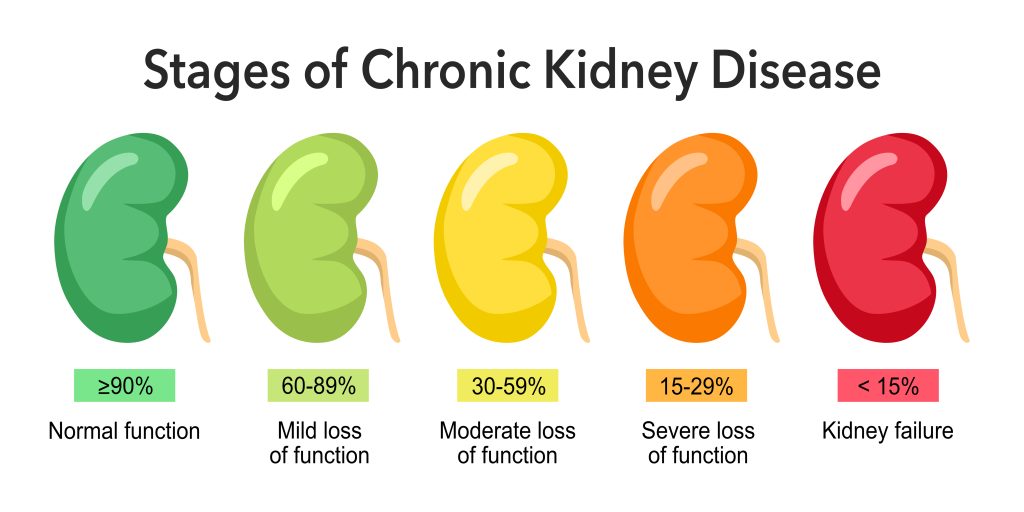
This image illustrates the stages of Chronic Kidney Disease (CKD), visually representing the progression of kidney function decline. The stages are categorized based on the percentage of kidney function remaining, which helps in understanding the severity of the disease and planning appropriate medical interventions.
Stage 1: Kidney Damage with Normal or High GFR (≥90%):
- Depicted by a healthy green kidney, this stage represents normal or high kidney function with a Glomerular Filtration Rate (GFR) of 90% or higher. Although kidney function is normal, there are signs of kidney damage, such as protein in the urine, indicating the presence of CKD.
Stage 2: Mild Loss of Function (60-89%):
- Represented by a slightly lighter green kidney, this stage indicates a mild decrease in kidney function with a GFR between 60% and 89%. People at this stage may not exhibit noticeable symptoms and may have mild damage that can be managed with lifestyle changes and monitoring.
Stage 3: Moderate Loss of Function (30-59%):
- Shown as a yellow kidney, this stage signifies moderate loss of kidney function with a GFR between 30% and 59%. Patients may begin to experience symptoms such as fatigue, swelling, and changes in urine output. Medical intervention and management are crucial at this stage to slow disease progression.
Stage 4: Severe Loss of Function (15-29%):
- Depicted by an orange kidney, this stage represents a severe decline in kidney function with a GFR between 15% and 29%. Symptoms become more pronounced, and patients may need more intensive treatment to manage complications and prepare for potential dialysis or transplant.
Stage 5: Kidney Failure (<15%):
- Shown as a red kidney, this final stage indicates kidney failure with a GFR below 15%. At this stage, the kidneys can no longer effectively filter waste from the blood, and dialysis or a kidney transplant is usually necessary to sustain life.
Understanding these stages is critical for early detection, proper management, and treatment of CKD to improve patient outcomes and quality of life.
Quiz
Please note that our articles are not intended to guide personal health decisions.
This content has been curated by Renes Care. Unauthorized use or reproduction is prohibited.
© Renes Care. All rights reserved.
